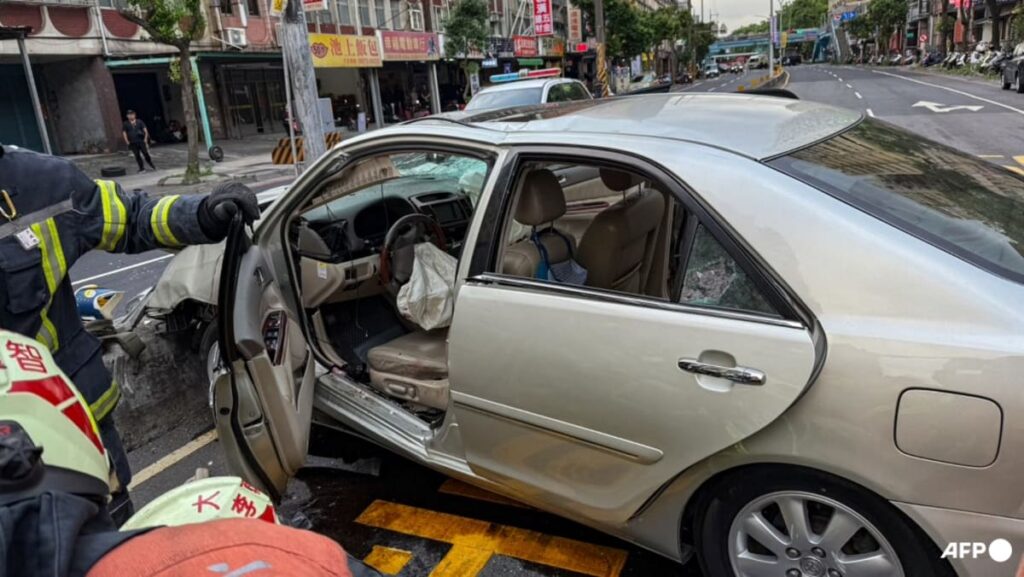“LIVING HELL FOR PEDESTRIANS”
Pedestrian safety in Taiwan has long been a subject of public concern. International attention was drawn to the issue in December 2022, when a CNN report described Taiwan as a “living hell” for pedestrians.
That month, a 30-year-old mother and her one-year-old son were killed after a public bus making a left turn hit them as they crossed an intersection in Taichung city. Two years later, again in Taichung city, a public bus making a left turn struck two university students at a pedestrian crossing, killing one of them.
In both cases, driver error was a factor – but so too were poorly designed intersections.
Despite repeated calls for reform, much of Taiwan’s road infrastructure still prioritises vehicles over people.
Road design guidelines are mostly outdated, driving tests fail to reflect real-world conditions, pedestrian infrastructure is lacking, and enforcement of traffic laws remains patchy at best.
As a result, informal traffic rules have taken hold based on local knowledge and experience, creating a chaotic traffic environment where each road user is left to fend for themselves. Such factors contribute to aggressive driving behaviours and a hostile traffic atmosphere.
While official statistics show a year-on-year decline in pedestrian deaths – 62 in January 2025, down from 82 a year earlier – the walking environment for many remains unchanged.
Pedestrians often find themselves forced into traffic lanes due to the absence of pavements and sidewalks. According to 2023 data, 46 per cent of roads that are 12m or wider do not have sidewalks.
Where they do exist, they are frequently blocked by businesses, residents, or illegally parked vehicles. Green-painted “sidewalks” – narrow stretches of road painted green to indicate pedestrian space – offer no real protection, and pedestrians typically lack the right of way.
Even Taiwan’s own officials acknowledge the scale of the problem. Transportation Minister Chen Shih-kai recently admitted that Taiwan’s traffic incident and casualty rates are “indeed higher” than in other nations.
Read the full article here

